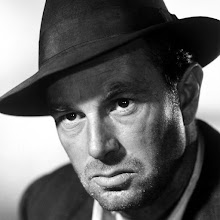Stratfor does the thinking.
Again.
==========
The Financial Crisis and the Six Pillars of Russian Strength
[...]
Geography and Development
[...]
All states economies’ to a great degree reflect their geographies. In the United States, the presence of large, interconnected river systems in the central third of the country, the intracoastal waterway along the Gulf and Atlantic coasts, the vastness of San Francisco Bay, the numerous rivers flowing to the sea from the eastern slopes of the Appalachian Mountains and the abundance of ideal port locations made the country easy to develop. The cost of transporting goods was nil, and scarce capital could be dedicated to other pursuits. The result was a massive economy with an equally massive leg up on any competition.
Russia’s geography is the polar opposite. Hardly any of Russia’s rivers are interconnected. The country has several massive ones — the Pechora, the Ob, the Yenisei, the Lena and the Kolyma — but they drain the nearly unpopulated Siberia to the Arctic Ocean, making them useless for commerce. The only river that cuts through Russia’s core, the Volga, drains not to the ocean but to the landlocked and sparsely populated Caspian Sea, the center of a sparsely populated region. Also unlike the United States, Russia has few useful ports. Kaliningrad is not connected to the main body of Russia. The Gulf of Finland freezes in winter, isolating St. Petersburg. The only true deepwater and warm-water ocean ports, Vladivostok and Murmansk, are simply too far from Russia’s core to be useful. So while geography handed the United States the perfect transport network free of charge, Russia has had to use every available kopek to link its country together with an expensive road, rail and canal network.
One of the many side effects of this geography situation is that the United States had extra capital that it could dedicate to finance in a relatively democratic manner, while Russia’s chronic capital deficit prompted it to concentrate what little capital resources it had into a single set of hands — Moscow’s hands. So while the United States became the poster child for the free market, Russia (whether the Russian Empire, Soviet Union or Russian Federation) has always tended toward central planning.
Russian industrialization and militarization began in earnest under Josef Stalin in the 1930s. Under centralized planning, all industry and services were nationalized, while industrial leaders were given predetermined output quotas.
Perhaps the most noteworthy difference between the Western and Russian development paths was the different use of finance. At the start of Stalin’s massive economic undertaking, international loans to build the economy were unavailable, both because the new government had repudiated the czarist regime’s international debts and because industrialized countries — the potential lenders — were coping with the onset of their own economic crisis (e.g., the Great Depression).
With loans and bonds unavailable, Stalin turned to another centrally controlled resource to “fund” Russian development: labor. Trade unions were converted into mechanisms for capturing all available labor as well as for increasing worker productivity. Russia essentially substitutes labor for capital, so it is no surprise that Stalin — like all Russian leaders before him — ran his population into the ground. Stalin called this his “revolution from above.”
Over the long term, the centralized system is highly inefficient, as it does not take the basic economic drivers of supply and demand into account — to say nothing of how it crushes the common worker. But for a country as geographically massive as Russia, it was (and remains) questionable whether Western finance-driven development is even feasible, due to the lack of cheap transit options and the massive distances involved. Development driven by the crushing of the labor pool was probably the best Russia could hope for, and the same holds true today.
:/
miercuri, 18 martie 2009
Geography as fate
Abonați-vă la:
Postare comentarii (Atom)





7 comentarii:
Punem pariu că nimeni nu va vrea să înţeleagă ce spun tipii în analiza lor? Şi tot ce vei obţine vor fi înjurături antiruseşti? Pentru că am lipsit de la lecţia de geografie, citim totul cu rusofobia.
Bine macar ca suntem unii care intelegem.
In rest, lucru de limpezire la cap. Fiecare cum poate, cat poate.
:)
Prin fraza de la sfarsit („Desvoltarea prin stoarcerea resurselor de forte de munca a fost probabil cel mai bun lucru pe care il putea spera Rusia, iar acest lucru e valabil si azi,“) autorul recunoaste ca sistemul centralizat al economiei este calea cea mai rapida de modernizare a unei tari, pentru smulgerea din subdesvoltare. De altfel acest lucru a fost demonstrat elocvent si in cazul Chinei, cu toate inconvenientele ce decurg de aici pentru o parte a populatiei pusa fara voia ei la treaba, dar si cu toate avantajele, pe termen mediu si lung, pentru restul populatiei scoasa din mizerie. Sunt convins ca si astazi multi romani, care nu au acces pentru a-si exprima public punctul de vedere in presa sau pe micul ecran, regreta sansa pe care a pierdut-o Romania prin procesul de modernizare socialista, neterminat in 1989. Iar dorul de revenire la putere a unei noi maini de fier, a unui om ale carui ordine sa fie ascultate fara cracnire in tara si care sa fie respectat peste hotare, ii vor face pe multi sa il voteze la toamna pe Basescu. Iar aceasta confuzie intre parada de autoritarism, agrementat cu viclenie politicianista si cu ceva nationalism antimaghiar, si valoarea reala de care e capabil individul pentru progresul tarii, ii va prelungi inca 5 ani la Cotroceni mandatul celui care, in cei cinci ani precedenti, nu a reusit decat sa provoace scandaluri si conflicte in clasa politica si nu a contribuit cu nimic la desvoltarea economica.
Intr'adevar, de acord cu Dvs. Cu exceptia ultimei propozitii. Faceam in capul meu matinal niste socoteli si'mi inchipuiam cum ar fi fost alternativa...
Domnii mei ca un tanar fara prea multa experientza in ale cuvintelor politicianiste, imi permit sa spun ca prefer varianta cu regim democrat si dezvoltare inceata decat un regim autoritarist si cu riscul ca el sa devina unul totalitarist! Prefer pasii mici si siguri, decat cei mari si prea putin siguri! ;)
P.S. Nu vreau sa imi fie din nou frica de pierderea LIBERTATII, pentru ca mi-e tare draga!
@ N. Raducanu "[...]Sunt convins ca si astazi multi romani, care nu au acces pentru a-si exprima public punctul de vedere in presa sau pe micul ecran, regreta sansa pe care a pierdut-o Romania prin procesul de modernizare socialista, neterminat in 1989.[...]" Si multi romani o si spun public, vezi cifrele ultimului sondaj postat la Turambar. :)
Yup. Adevarat. Multi romani sunt nostalgici dupa vremurile apuse.
Acelasi sondaj la care faci referire confirma si apetenta cocosatoare a romanilor (peste 85%) pentru o mana de fier, un pumn de otzel care sa culeaga cu gratie toata rapita de pe campul politicii si vietii publice romanesti.
Cum spunea distinsul caragielean: O dictatura ca'n Rusia, stimabile, daca ma'ntzelegi ce vreau sa spui.
Trimiteți un comentariu